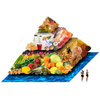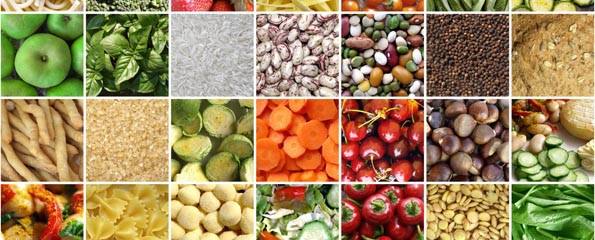Nutrition: Overview
- What is nutrition?
- Measures of nutrition
- Types and composition of food
- Nutrition and the body
- Nutrition and people
- Health conditions related to nutrition
- Nutrition for medical conditions
- Diets and healthy food choices
What is nutrition?
 | Nutrition is defined as the processes by which an animal or plant takes in and utilises food substances. In humans, nutrition is mainly achieved through the process of putting foods into our mouths, chewing and swallowing it. Essential nutrients include protein, carbohydrate, fat and electrolytes. Nutrition is essential for growth and development, health and wellbeing. |
For more information, see Introduction to Nutrition.
Video: The basics of eating
 | Something that we all do every day is eat. But eating can get complicated – there is a lot of variety and choice, and a lot of contradictory advice on what’s best for us. Dr Joe Kosterich explains the basics of what we need to eat.Watch a video about the basics of eating. |
Measures of nutrition
 | There are many ways that the nutritional value of food can be measured, including by glycaemic index and glycaemic load. The effect of food on the body can also be measured by such tools as the body mass index and blood cholesterol testing. |
For more information, see Measures of Nutrition.
Types and composition of food
 | We must eat a variety of foods, since different foods contain different nutrients in varying amounts. A healthy diet consists mainly of plant foods (e.g. fruits and vegetables, cereals) and moderate amounts of animal products (e.g. dairy, fish, lean red meat and poultry). |
For more information, see Types and Composition of Food.
Nutrition and the body
 | Many people are concerned with not only their general health, but their appearance as well. Getting the best nutrition you can is essential for maintaining a healthy body and your natural beauty. What you eat can affect your skin, eyes, teeth and fertility. |
For more information, see Nutrition and the Body.
Nutrition and people
 | The nutritional needs of children and adolescents are different to those of adults because children are growing and developing. Likewise, the nutritional needs of a woman who is pregnant or breastfeeding are different to those of men or elderly women because their bodies are under different demands. |
For more information, see Nutrition and People.
Health conditions related to nutrition
 | Many health conditions are associated with food, either effecting the diet or resulting from the diet. These health conditions range from food allergies, to malnutrition or obesity, to anorexia and bulimia. |
For more information, see Health Conditions Related to Nutrition.
Nutrition for medical conditions
 | Many health conditions, including high cholesterol, lactose intolerance, diabetes, pain, cancer and kidney failure, require special diets to meet their nutritional needs or restrictions. |
For more information, see Nutrition for Medical Conditions.
Diets and healthy food choices
 | Many consumers pick foods depending on the attraction and temptation of the item, but there are many things we should know to help us eat a nutritious and healthy diet. Consumers should also seek to know more about special diets, such as vegetarian diets, Mediterranean diets and liver cleansing diets, before choosing to follow them. |
For more information, see Diets and Healthy Food Choices.
Dates
Tags
Created by:

 Login
Login














